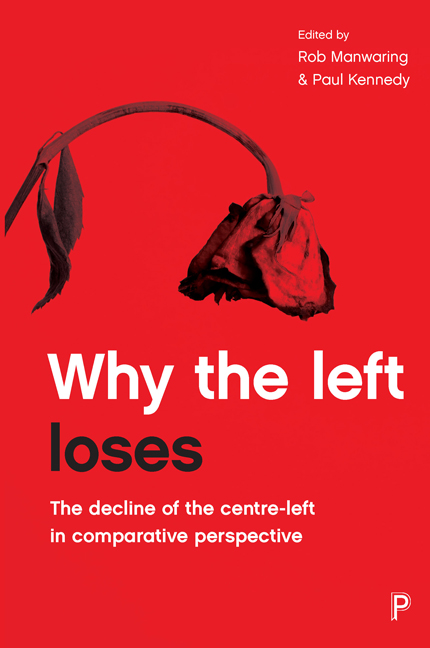Book contents
ten - The French Parti socialiste (2010-16): from office to crisis
Published online by Cambridge University Press: 08 April 2022
Summary
France finds itself in a decisive moment of its history. Ten years of Conservative rule have led her to where she is today, that is to say on the verge of a break with herself. (Hollande, 2012, p 8)
Introduction
The French Socialist Party (Parti socialiste, PS) is one of the least successful of the major European social democratic parties. Since the Fifth Republic, it has occupied the presidential office for 14 (1981-95) out of 54 years, and five years of prime ministerial power compromised by cohabitation (Bell and Criddle, 2014, pp 290-1). In 2012, the PS reclaimed the Élysée Palace for the first time since 1995. While the French presidency should have heralded a reversal of fortune for the Socialist Party, over the past four years, under the leadership of Francois Hollande, it has experienced political and ideological turmoil. This general crisis has coincided with domestic and international economic and socio-political challenges. A majority of European countries have experienced a shift in the political dynamic of their party systems. The rise of extreme right-wing parties increasingly presents an important electoral threat to mainstream parties. Their electoral accession has concurred with societal challenges including the Euro crisis and subsequent sovereign debt crisis.
There is no doubt that Hollande's appointment to executive power initially demonstrated that social democracy could indeed provide a viable and feasible alternative socioeconomic and political paradigm to the neoliberal imperatives of the EU. Shortly after having obtained the presidency, however, Hollande received the lowest popularity vote in the history of the French Fifth Republic. This chapter examines the crisis of the French PS, focusing on the period between the 2008 global financial crisis (GFC) until the end of the Hollande presidency in 2017. It argues that the crisis of the PS is twofold: first, a political crisis that is revealed by the divisive nature of the Party's internal courants (factions). Whereas the factions initially contributed to the PS's internal democracy, over the past two decades they have significantly affected the PS's cohesiveness and ability to effectively develop and implement necessary policies. And second, an economic crisis that is exemplified by the PS's inability to adapt to its external and internal environments, such as the neoliberal imperatives of the EU, unprecedented high unemployment and increasing insecurity
- Type
- Chapter
- Information
- Why the Left LosesThe Decline of the Centre-Left in Comparative Perspective, pp. 151 - 166Publisher: Bristol University PressPrint publication year: 2017



